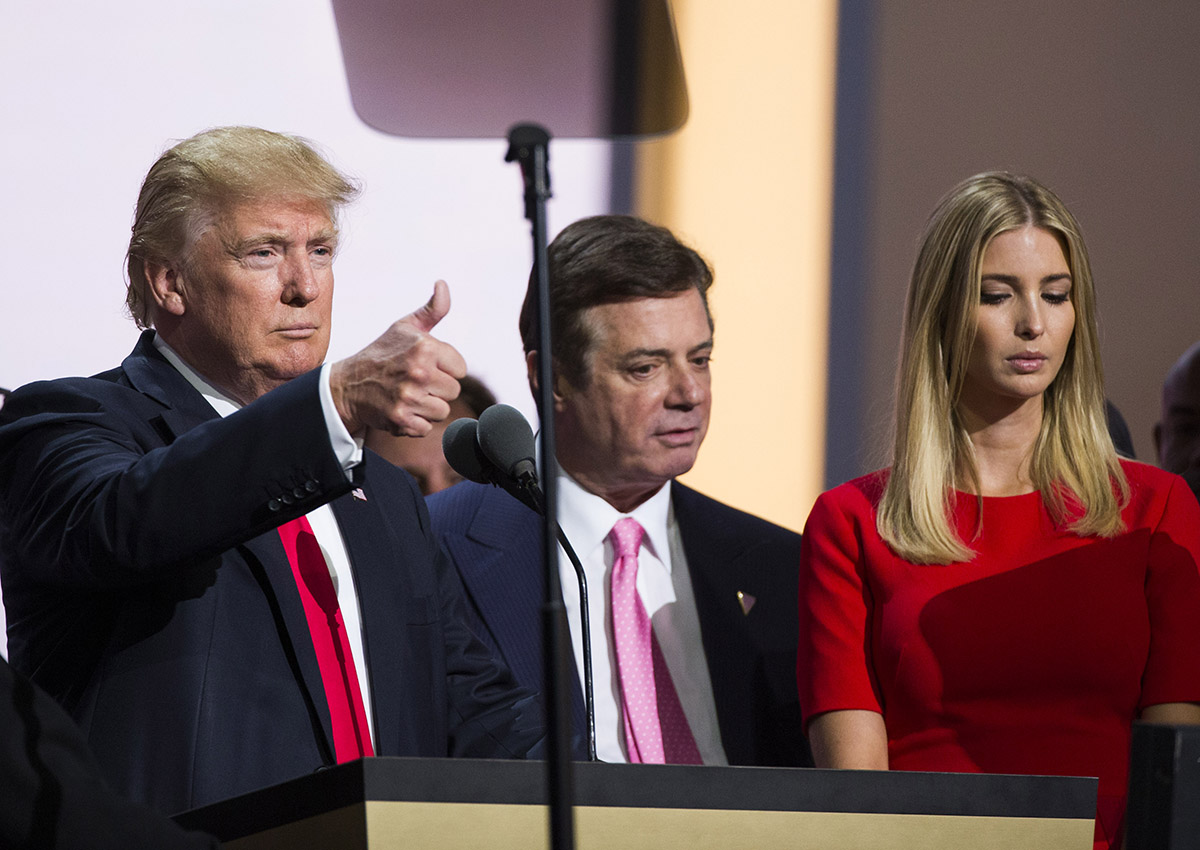It seemed to be a carefully crafted one-two punch.

The charges against former Trump campaign chair Paul Manafort and his associate Rick Gates seemed straightforward enough.
The surprise came when Robert Mueller’s team unsealed the Oct. 5 guilty plea of George Papadopoulos, a foreign policy adviser to the Trump campaign.
In doing so, Mueller’s team torpedoed the Trump administration’s key line of defence, and as a result, the White House can no longer claim that Mueller’s probe is a big nothingburger, when it comes to uncovering ties between the Trump campaign and Russia.
WATCH: George Papadopoulos had ‘extremely limited’ role with Trump campaign

While the charges against Manafort and Gates say nothing about the Trump campaign or Russia, the Papadopoulos affidavit reads as a blow-by-blow account of an alleged attempt to work with the Russian government.
Papadopoulos acknowledges that a Russian contact, identified as “the professor,” had told him about the Russians possessing “dirt” on Hillary Clinton in the form of “thousands of emails.”
The timeline puts this in April 2016, when Papadopoulos was well entrenched in the Trump campaign as a foreign policy adviser.

Get breaking National news
It all sounds awfully similar to the meeting between a Kremlin-connected lawyer and Donald Trump Jr., premised on sharing “dirt” on Hillary Clinton.
Importantly, Papadopoulos told the FBI he repeatedly sought to use “the professor’s” Russian contacts to try and arrange a meeting between the Trump campaign and Russian officials. He goes on to talk about how he discussed these efforts with “high-ranking campaign officials” and “campaign supervisors.”
WATCH: Former Trump campaign chair Paul Manafort and associate indicted on 12 counts in Russia probe

He doesn’t name names, but you can bet the FBI knows who he’s talking about.
Remember, Papadopoulos has been co-operating with investigators since his arrest in July.
The fact that his guilty plea was sealed by the courts raises questions about whether he may have continued working to help investigators without wanting to tip off former colleagues to his co-operation with Mueller’s probe.
On Monday, the White House was quick to dismiss Papadopoulos as a nobody.
“I’m telling you that he was a volunteer member of an advisory council that literally met one time,” said Press Secretary Sarah Sanders on Monday.
WATCH: Manafort indictment has ‘nothing to do’ with Trump or campaign: White House

In fact, that meeting, on March 31, 2016, involved then-candidate Trump, Jeff Sessions (who supervised the foreign policy team) and the rest of the foreign policy advisers. We know this because Trump posted a picture of the meeting on Instagram.
But even that meeting is problematic for the Trump team.
According to his affidavit, Papadopoulos advised the group that he had connections to Russia and could help arrange a meeting between Trump and Russian president Vladimir Putin.
In other words, even if Papadopoulos was a low-level player, he made his intentions known to the very highest levels of the campaign.
Of course, none of this is definitive proof of actual collusion between the Trump campaign and Russia, but it certainly diminishes Trump’s claims that there’s nothing to see here.
Perhaps the biggest tell is how the day is playing in pro-Trump media circles, where talking about Paul Manafort’s indictment is somehow a more comfortable subject than talking about Papadopoulos’s confession.








Comments
Want to discuss? Please read our Commenting Policy first.